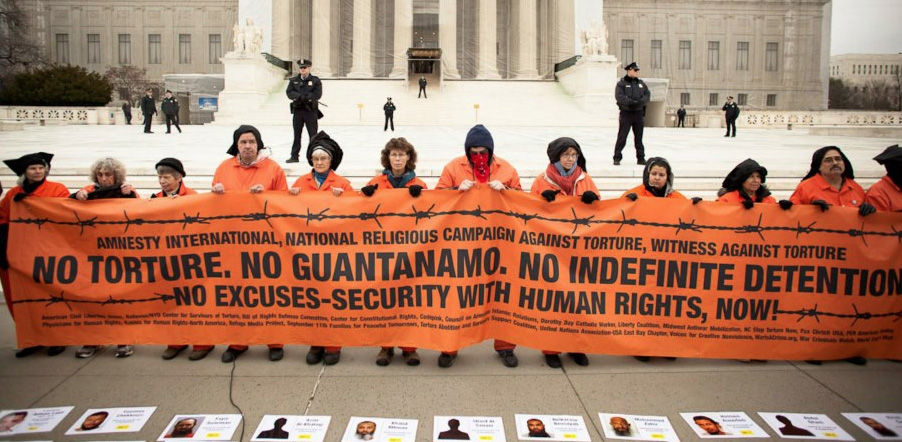The pretrial hearings in the Omar Khadr case ended last week on two particularly sour notes.
First, in a profound blow to the credibility of the Military Commissions process the Department of Defense banned four journalists covering the trial from returning to GTMO.
The four journalists were blackballed for revealing the identity of Interrogator #1. Three of the four are Canadian and they include Michelle Shephard of the Toronto Star who has written a book about the Khadr case, “Guantanamo’s Child”.
The fifth reporter is the Miami Herald’s Carol Rosenberg who has followed the Military Commissions for years and is practically a permanent fixture in GTMO. You can read the Pentagon’s letter by clicking on this link.
What makes this decision so absurd is that Interrogator #1’s identity has been public knowledge for more than two years. He outed himself in 2008 by giving an exclusive interview to Michelle Shephard about his role in Khadr’s interrogation. I suspect Al Qaeda already has access to Google.
Judge Parrish has gone to great lengths this week to stress his commitment to conducting as transparent a proceeding as possible – refusing to hear arguments in chambers that can be made in the courtroom.
The Pentagon has blown this open posture out of the water in an attempt to shut a stable door two years after it was left wide open.
More alarming still was that this decision coincided with an extraordinary attack on Omar Khadr’s defense attorneys by the Chief Prosecutor, Captain John Murphy, at a press conference held after the hearings closed.
Captain Murphy publically accused Khadr’s defense team of ethical violations in the statements that they had given the media about the case over the previous two weeks. He said that he would be referring these violations to the appropriate authorities for investigation.
Taken together it is difficult to escape the conclusion that these two initiatives are intended to intimidate both reporters and defense attorneys from pushing too hard as they perform their duties on GTMO.
There are already precious few guarantors that defendants at the Commissions will receive a fair trial as it is – the government now seems to want to undermine these slim safeguards even further.

 Today is the tenth anniversary of
Today is the tenth anniversary of 
